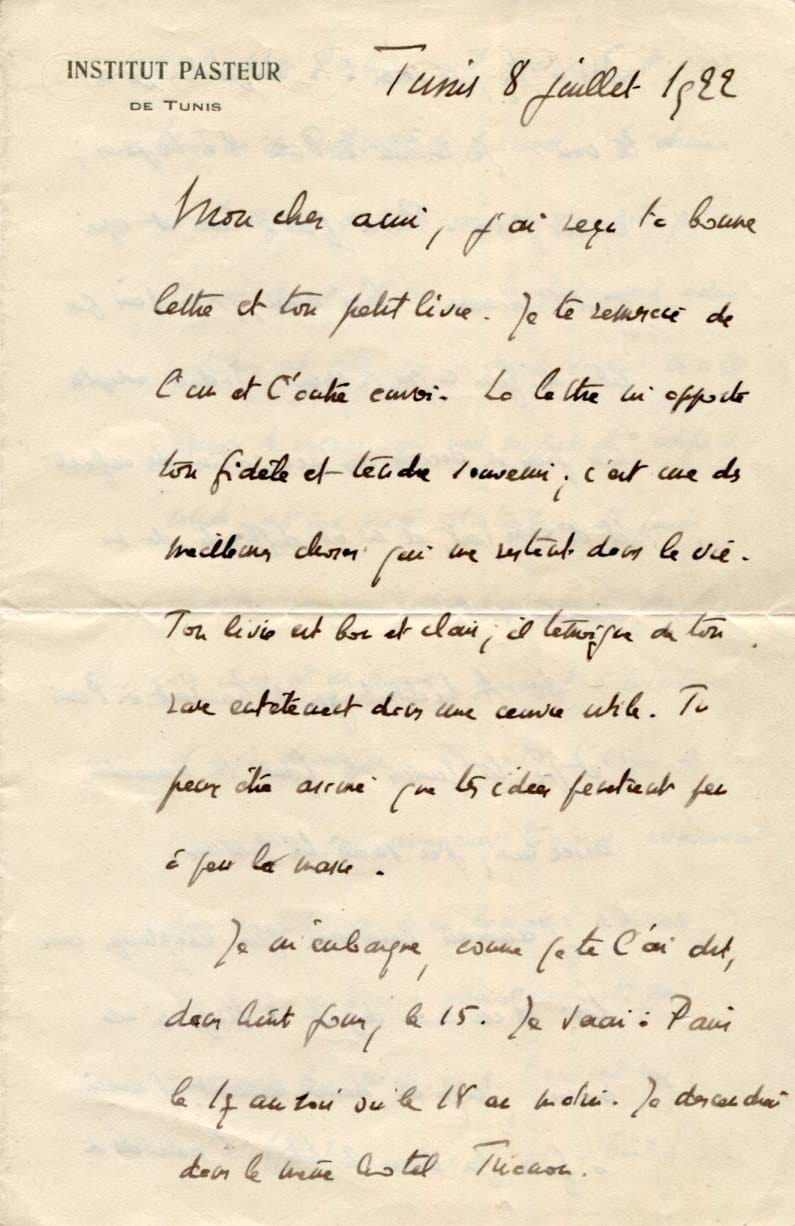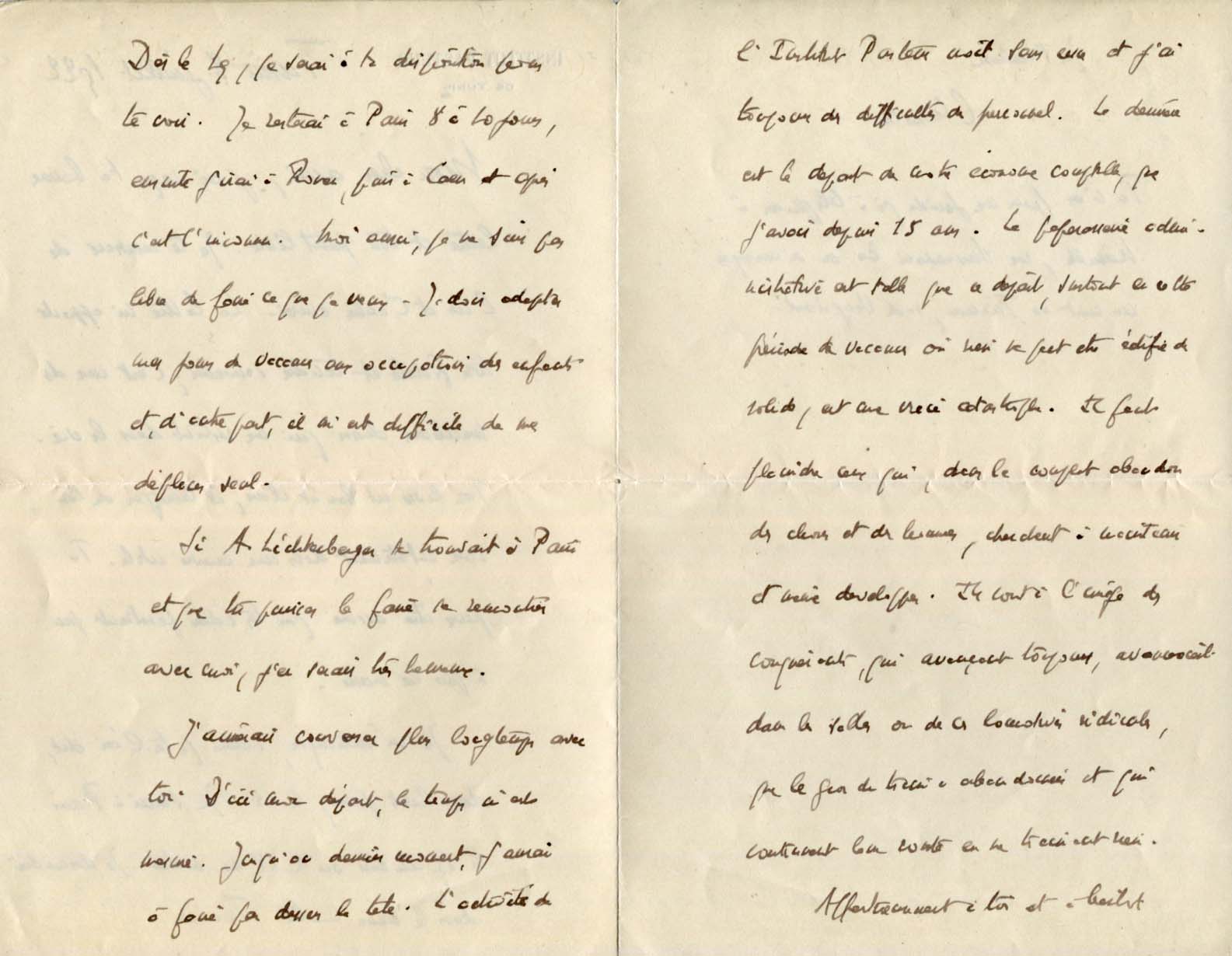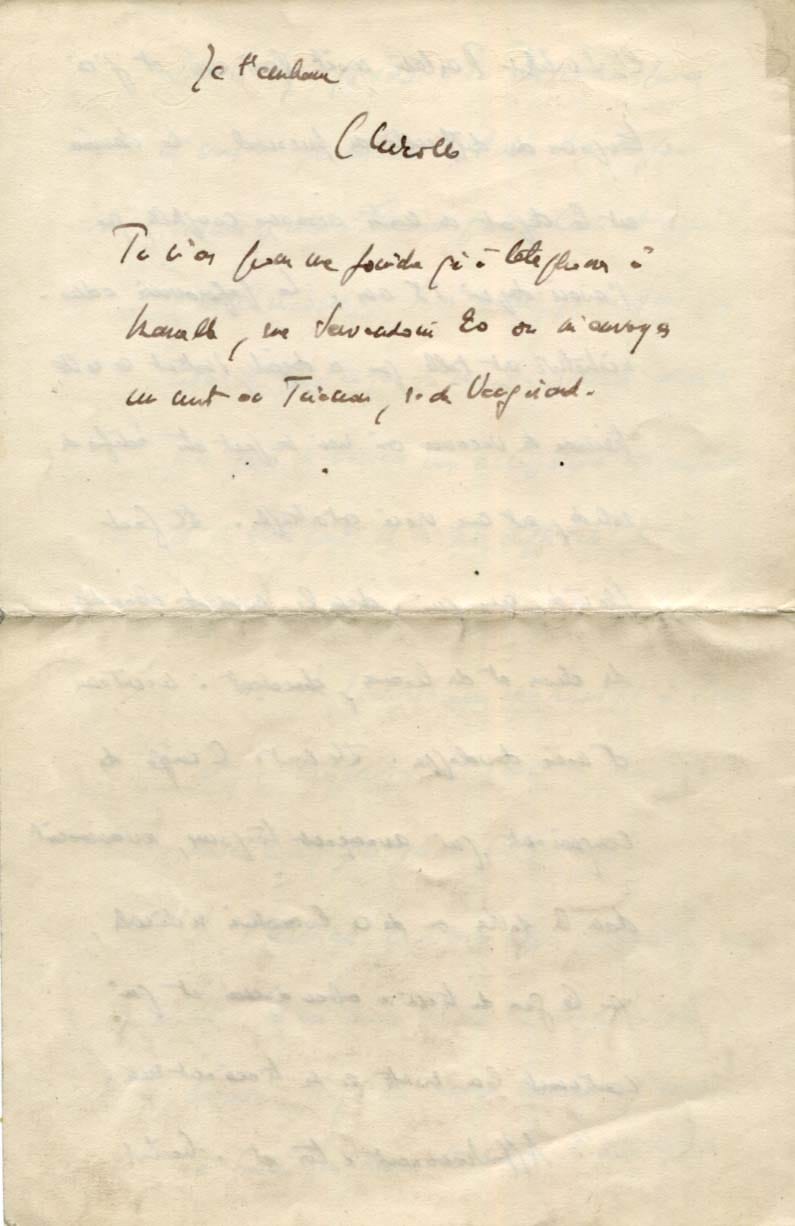Beschreibung
In Ausschnitten:
"Tunis 8 juillet 1922
Mon cher ami, j'ai reçu ta bonne lettre et ton petit livre. Je te remercie de l`eu et [...] envoi. [...] Ton livre est bon et clair [...]"
Weitere Infos zur Person
Profession:
(1866 - 1936) Französischer Bakteriologe, der den Nobelpreis für Medizin erhielt
Geburtsjahr: 1866
Echtheitszertifikat
Zahlung & Sicherheit
Deine Zahlungsinformationen werden sicher verarbeitet. Wir speichern keine Kreditkartendaten und haben auch keinen Zugang zu deinen Kreditkartendaten.



